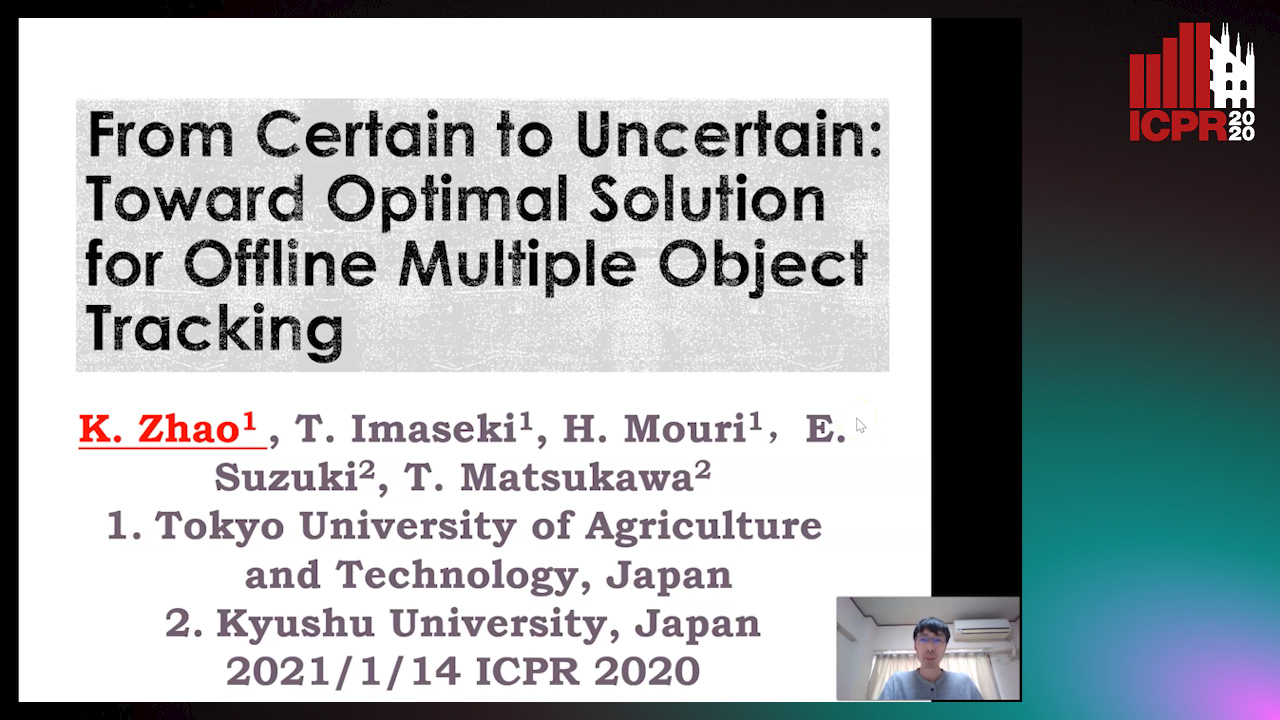Einoshin Suzuki
Papers from this author
Convolutional Feature Transfer via Camera-Specific Discriminative Pooling for Person Re-Identification
Tetsu Matsukawa, Einoshin Suzuki

Auto-TLDR; A small-scale CNN feature transfer method for person re-identification
Abstract Slides Poster Similar
From Certain to Uncertain: Toward Optimal Solution for Offline Multiple Object Tracking
Kaikai Zhao, Takashi Imaseki, Hiroshi Mouri, Einoshin Suzuki, Tetsu Matsukawa

Auto-TLDR; Agglomerative Hierarchical Clustering with Ensemble of Tracking Experts for Object Tracking
Abstract Slides Poster Similar